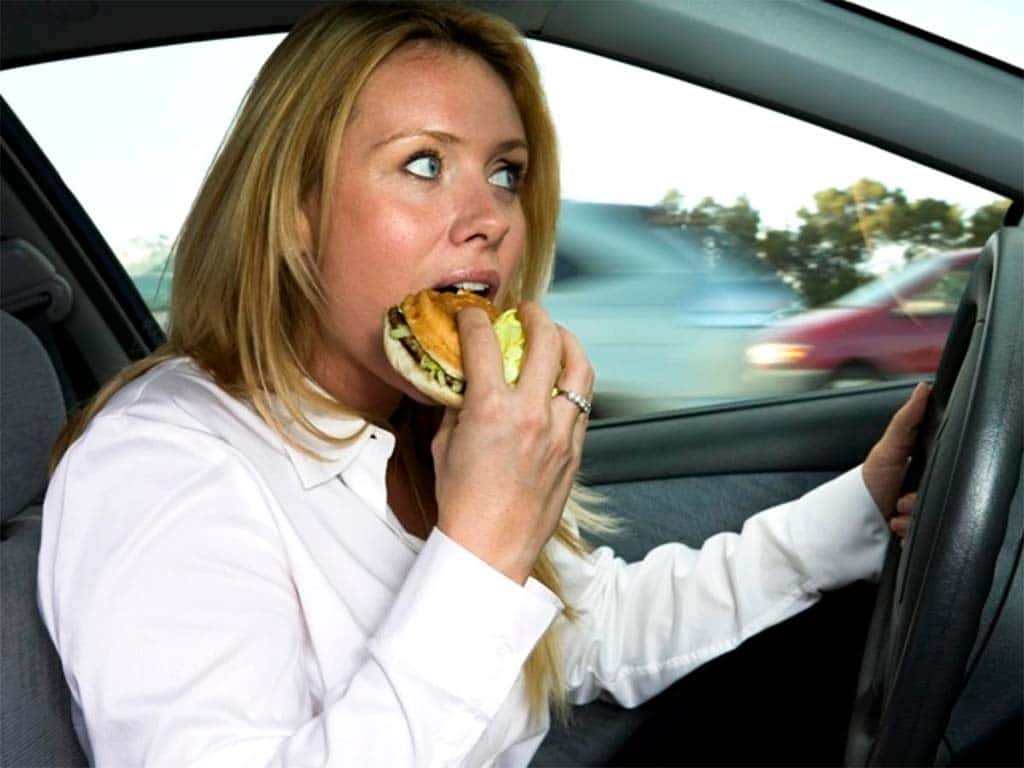While it’s not what motorists typically think of when they hear that they shouldn’t drink and drive, the New Jersey state legislature is considering a bill that would prohibit drivers from sipping their morning coffee behind the wheel. A bill under consideration in the state Legislature calls to prohibit "any activity unrelated to the actual operation of a motor vehicle in a manner that interferes with the safe operation of the vehicle on a public road or highway."
This means that, in the eyes of the state of New Jersey, motorists seen doing things like drinking coffee, eating a sandwich, or brushing their hair behind the wheel are as distracted as someone who is using their cell phone while driving.
"The issue is that we need to try, in every way, to discourage distracted driving, it's dangerous," said Assemblyman John Wisniewski, the sponsor of the bill. "Education and enforcement can change the attitudes of people."
Get caught sipping that soda or sneaking a bite of that burger, and this legislation would slap drivers with the same penalties as someone caught sending a text while driving. A first offense of this new law would land you between $200 and $400 in fines, a second offense would cost $400 to $600, and a third strike would cost you $600 to $800. Additionally, a third offense could also result in a 90-day suspension of that license and points on your driving record.
While this law sounds unnecessary – and many, many residents of the Garden State are already expressing their displeasure with this proposed law --, eating and drinking can be as distracting as texting and driving. A study by Britain's Brunel University found that handling food behind the wheel can cause an attention overload, doubling the risk of an accident. Additionally, in the first half of 2016, 216 motorists in New Jersey were killed in traffic accidents. That’s almost a 10 percent increase over last year’s statistics.
Wisniewski’s bill is intended to educate drivers, rather than punish them. Those who support the legislation point out that only texting and using a cellphone while driving are specifically banned under existing laws.
But organizations who want a crackdown on distracted driving feel this law will turn the Garden State into a "Nanny State." AAA questions whether or not this bill would help improve enforcement of legislation that is already on the books.
